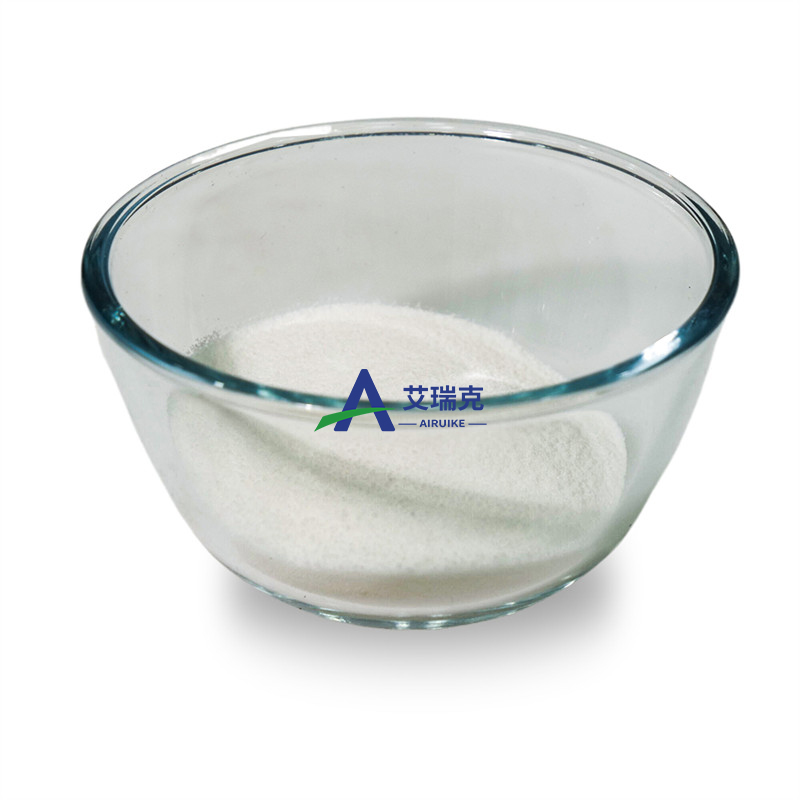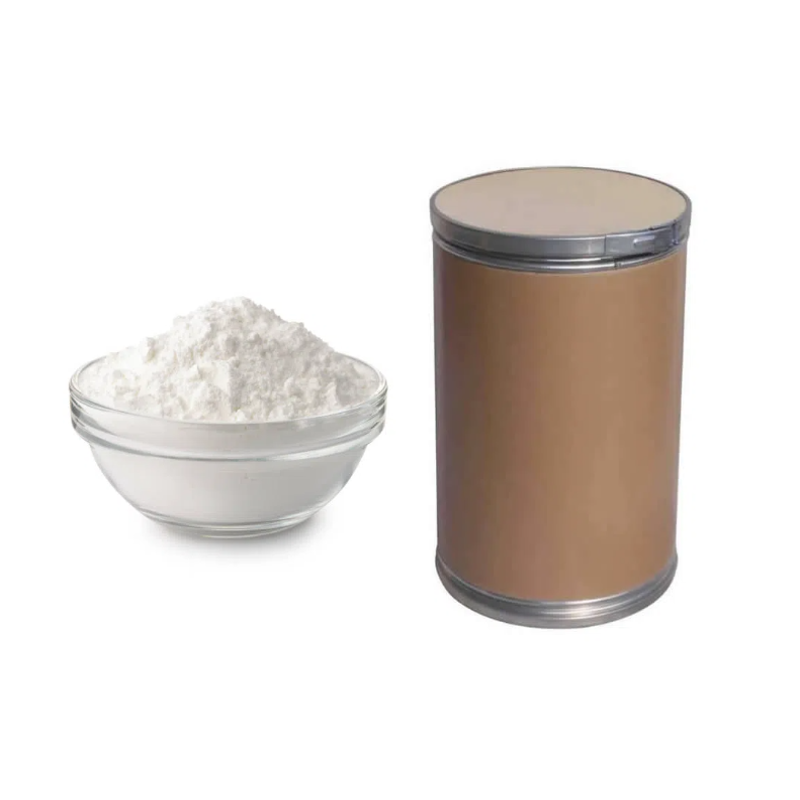-
Categories
-
Pharmaceutical Intermediates
-
Active Pharmaceutical Ingredients
-
Food Additives
- Industrial Coatings
- Agrochemicals
- Dyes and Pigments
- Surfactant
- Flavors and Fragrances
- Chemical Reagents
- Catalyst and Auxiliary
- Natural Products
- Inorganic Chemistry
-
Organic Chemistry
-
Biochemical Engineering
- Analytical Chemistry
-
Cosmetic Ingredient
- Water Treatment Chemical
-
Pharmaceutical Intermediates
Promotion
ECHEMI Mall
Wholesale
Weekly Price
Exhibition
News
-
Trade Service
2021 EAU Guidelines: The EAU Guidelines for First-line Treatment of Metastatic Urothelial Carcinoma are one of the most authoritative guidelines in the world, updated once a year, and each update attracts the attention of urologists worldwide
.
This article summarizes the second-line and above treatments for metastatic urothelial carcinoma in the 2021 EAU guidelines
.
Figure: The treatment of metastatic urothelial carcinoma.
A small phase II study of second-line chemotherapy showed that paclitaxel (weekly), docetaxel, gemcitabine, albumin paclitaxel, oxaliplatin, ifosfamide, topotecan, peimer The response rate of second-line treatment such as traxide is 0-28%
.
Paclitaxel + gemcitabine showed a good response rate, but it was not further confirmed in the phase III study
.
The phase III study showed that vinflunine showed a certain response compared to the best supportive treatment, with an ORR of 8.
6%, good safety, and survival benefits, but only in eligible patients (non-ITT population).
Meaning
.
A phase III randomized study evaluated the efficacy of ramucirumab + docetaxel versus docetaxel.
The results showed that the combination therapy can improve progression-free survival (PFS) and increase the objective response rate (ORR).
But overall survival (OS) has no benefit
.
A phase III randomized study of second-line immunotherapy showed that pembrolizumab versus chemotherapy (paclitaxel, docetaxel, vinflunine) can significantly improve the OS of patients with metastatic urothelial cancer, regardless of the level of PD-L1 expression.
The median OS of the pembrolizumab group and the chemotherapy group were 10.
3 months and 7.
4 months, respectively (HR=0.
73, P=0.
002)
.
Pembrolizumab has been approved by the FDA and EMA for the second-line treatment of metastatic urothelial cancer
.
The Phase III IMvigor211 study enrolled 931 patients to evaluate the efficacy of atilizumab versus chemotherapy for second-line treatment of metastatic urothelial cancer, but the study did not reach the primary endpoint
.
Among patients with high PD-L1 expression, the median OS of atilizumab group and chemotherapy group were 11.
1 months and 10.
6 months (HR=0.
87, P=0.
41)
.
Based on the Phase II CheckMate 275 study, nivolumab has also been approved by the FDA for the second-line treatment of metastatic urothelial cancer
.
The primary endpoint of the study was ORR (19.
6%), and the median OS was 8.
74 months
.
According to evidence from a level 1 randomized controlled trial, pembrolizumab has become the preferred standard immunotherapy regimen for second-line treatment
.
Enfortumab vedotin, the first ADC drug in the field of urothelial cancer, has shown encouraging results
.
In the phase II EV-201 study, the ORR of EV-201 in patients with metastatic urothelial cancer after platinum and immunotherapy reached 44%, of which 12% achieved complete remission (CR)
.
Based on this, enfortumab vedotin was quickly approved by the FDA for the treatment of locally advanced urothelial cancer or metastatic urothelial cancer that has progressed through platinum and PD-1/PD-L1 treatment
.
The phase III randomized study included 608 patients.
The results showed that the median OS of enfortumab vedotin compared with chemotherapy for treated metastatic urothelial cancer patients was 12.
88 months and 8.
97 months (HR=0.
7)
.
When enfortumab vedotin+pembrolizumab was used for the first-line treatment of patients with locally advanced and metastatic urothelial cancer that is not suitable for cisplatin, the ORR reached 73.
3%, and 15.
6% of the patients reached CR
.
Currently, the Phase III EV-201 study is further verifying the effectiveness of the joint program
.
Another new and potential ADC drug, sacituzumab govitecan, is formed by linking an antibody targeting Trop-2 with the active metabolite SN-38 of the chemotherapeutic drug irinotecan
.
The ORR of sacituzumab govitecan in 113 treated patients with metastatic urothelial carcinoma reached 27%, and the median PFS and median OS were 5.
4 months and 10.
9 months, respectively
.
Sacituzumab govitecan has also been rapidly approved by the FDA for use in patients with metastatic urothelial cancer after platinum and immunotherapy have progressed
.
Genomic analysis of patients with FGFR inhibitor urothelial cancer revealed common and potentially available gene mutations, including the fibroblast growth factor receptor (FGFR) gene
.
Erdatinib is a pan-FGFR tyrosine kinase inhibitor (TKI).
It is the first targeted drug approved by the FDA for patients with metastatic urothelial cancer with FGFR2/3 mutations during or after chemotherapy
.
Its approval was mainly based on a phase II study that included 99 patients with FGFR3 mutations or FGFR2/3 fusions who had advanced chemotherapy
.
The results showed that the confirmed ORR was 40%
.
A total of 22 patients had previously received immunotherapy.
In this subgroup, the ORR of erdatinib reached 59%
.
At a median follow-up of 24 months, the median PFS and median OS were 5.
5 months and 11.
3 months, respectively
.
Other FGFR inhibitors, such as figratinib, also show promising anti-tumor activity, and researchers are further exploring its efficacy
.
The predictive biomarker expert group recommends that the ideal situation is to perform FGFR3 mutation testing to screen patients with metastatic urothelial cancer when diagnosed with metastatic disease, and to make decisions about the best treatment sequence, including clinical trials
.
At present, the PD-L1 test is the only biomarker test approved by the FDA/EMA in patients with metastatic urothelial cancer, and it mainly involves immunotherapy for patients who are not suitable for cisplatin chemotherapy
.
Another biomarker that predicts immune response is tumor mutational burden (TMB)
.
In many tumor types, neoantigens and TMB are associated with immune checkpoint inhibitor responses
.
Some small studies have shown that in patients with metastatic urothelial cancer, high TMB is usually associated with immune checkpoint inhibitor response, but this has not been confirmed in prospective studies
.
Other explorations include CD8 expression, other immune response-related genes, and transforming growth factors to predict immunotherapy response
.
Reference: The 2021 Updated European Association of Urology Guidelines on Metastatic Urothelial Carcinoma, Eur Urol (2021), https://doi.
org/10.
1016/j.
eururo.
2021.
09.
02
.
This article summarizes the second-line and above treatments for metastatic urothelial carcinoma in the 2021 EAU guidelines
.
Figure: The treatment of metastatic urothelial carcinoma.
A small phase II study of second-line chemotherapy showed that paclitaxel (weekly), docetaxel, gemcitabine, albumin paclitaxel, oxaliplatin, ifosfamide, topotecan, peimer The response rate of second-line treatment such as traxide is 0-28%
.
Paclitaxel + gemcitabine showed a good response rate, but it was not further confirmed in the phase III study
.
The phase III study showed that vinflunine showed a certain response compared to the best supportive treatment, with an ORR of 8.
6%, good safety, and survival benefits, but only in eligible patients (non-ITT population).
Meaning
.
A phase III randomized study evaluated the efficacy of ramucirumab + docetaxel versus docetaxel.
The results showed that the combination therapy can improve progression-free survival (PFS) and increase the objective response rate (ORR).
But overall survival (OS) has no benefit
.
A phase III randomized study of second-line immunotherapy showed that pembrolizumab versus chemotherapy (paclitaxel, docetaxel, vinflunine) can significantly improve the OS of patients with metastatic urothelial cancer, regardless of the level of PD-L1 expression.
The median OS of the pembrolizumab group and the chemotherapy group were 10.
3 months and 7.
4 months, respectively (HR=0.
73, P=0.
002)
.
Pembrolizumab has been approved by the FDA and EMA for the second-line treatment of metastatic urothelial cancer
.
The Phase III IMvigor211 study enrolled 931 patients to evaluate the efficacy of atilizumab versus chemotherapy for second-line treatment of metastatic urothelial cancer, but the study did not reach the primary endpoint
.
Among patients with high PD-L1 expression, the median OS of atilizumab group and chemotherapy group were 11.
1 months and 10.
6 months (HR=0.
87, P=0.
41)
.
Based on the Phase II CheckMate 275 study, nivolumab has also been approved by the FDA for the second-line treatment of metastatic urothelial cancer
.
The primary endpoint of the study was ORR (19.
6%), and the median OS was 8.
74 months
.
According to evidence from a level 1 randomized controlled trial, pembrolizumab has become the preferred standard immunotherapy regimen for second-line treatment
.
Enfortumab vedotin, the first ADC drug in the field of urothelial cancer, has shown encouraging results
.
In the phase II EV-201 study, the ORR of EV-201 in patients with metastatic urothelial cancer after platinum and immunotherapy reached 44%, of which 12% achieved complete remission (CR)
.
Based on this, enfortumab vedotin was quickly approved by the FDA for the treatment of locally advanced urothelial cancer or metastatic urothelial cancer that has progressed through platinum and PD-1/PD-L1 treatment
.
The phase III randomized study included 608 patients.
The results showed that the median OS of enfortumab vedotin compared with chemotherapy for treated metastatic urothelial cancer patients was 12.
88 months and 8.
97 months (HR=0.
7)
.
When enfortumab vedotin+pembrolizumab was used for the first-line treatment of patients with locally advanced and metastatic urothelial cancer that is not suitable for cisplatin, the ORR reached 73.
3%, and 15.
6% of the patients reached CR
.
Currently, the Phase III EV-201 study is further verifying the effectiveness of the joint program
.
Another new and potential ADC drug, sacituzumab govitecan, is formed by linking an antibody targeting Trop-2 with the active metabolite SN-38 of the chemotherapeutic drug irinotecan
.
The ORR of sacituzumab govitecan in 113 treated patients with metastatic urothelial carcinoma reached 27%, and the median PFS and median OS were 5.
4 months and 10.
9 months, respectively
.
Sacituzumab govitecan has also been rapidly approved by the FDA for use in patients with metastatic urothelial cancer after platinum and immunotherapy have progressed
.
Genomic analysis of patients with FGFR inhibitor urothelial cancer revealed common and potentially available gene mutations, including the fibroblast growth factor receptor (FGFR) gene
.
Erdatinib is a pan-FGFR tyrosine kinase inhibitor (TKI).
It is the first targeted drug approved by the FDA for patients with metastatic urothelial cancer with FGFR2/3 mutations during or after chemotherapy
.
Its approval was mainly based on a phase II study that included 99 patients with FGFR3 mutations or FGFR2/3 fusions who had advanced chemotherapy
.
The results showed that the confirmed ORR was 40%
.
A total of 22 patients had previously received immunotherapy.
In this subgroup, the ORR of erdatinib reached 59%
.
At a median follow-up of 24 months, the median PFS and median OS were 5.
5 months and 11.
3 months, respectively
.
Other FGFR inhibitors, such as figratinib, also show promising anti-tumor activity, and researchers are further exploring its efficacy
.
The predictive biomarker expert group recommends that the ideal situation is to perform FGFR3 mutation testing to screen patients with metastatic urothelial cancer when diagnosed with metastatic disease, and to make decisions about the best treatment sequence, including clinical trials
.
At present, the PD-L1 test is the only biomarker test approved by the FDA/EMA in patients with metastatic urothelial cancer, and it mainly involves immunotherapy for patients who are not suitable for cisplatin chemotherapy
.
Another biomarker that predicts immune response is tumor mutational burden (TMB)
.
In many tumor types, neoantigens and TMB are associated with immune checkpoint inhibitor responses
.
Some small studies have shown that in patients with metastatic urothelial cancer, high TMB is usually associated with immune checkpoint inhibitor response, but this has not been confirmed in prospective studies
.
Other explorations include CD8 expression, other immune response-related genes, and transforming growth factors to predict immunotherapy response
.
Reference: The 2021 Updated European Association of Urology Guidelines on Metastatic Urothelial Carcinoma, Eur Urol (2021), https://doi.
org/10.
1016/j.
eururo.
2021.
09.
02







